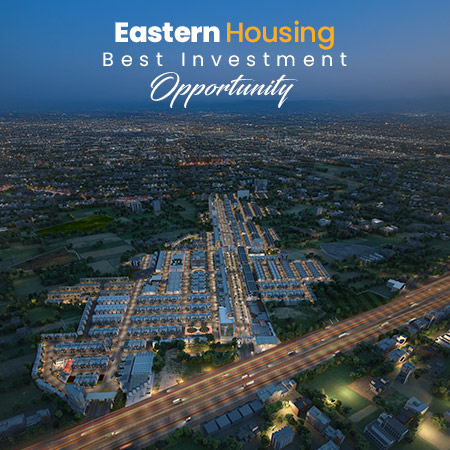The Pakistan property market in 2025 is buzzing with opportunity, shaped by economic recovery, rapid urbanization, and a tech-savvy approach to real estate. As someone who’s watched friends and family navigate this dynamic market, I can tell you it’s an exciting yet complex landscape. Whether you’re an investor eyeing high-rise apartments in Lahore or a first-time buyer dreaming of a home in Karachi, understanding the trends and forecasts for 2025 is key to making smart decisions. Let’s dive into what’s driving the market, what to expect, and how it impacts you.
Economic Recovery Fuels Optimism
Pakistan’s economy is showing signs of resilience in 2025, with GDP growth projected at 2.68% and inflation dropping to 4.5%. This stability is a game-changer for real estate, boosting investor confidence and increasing purchasing power. Government initiatives like the China-Pakistan Economic Corridor (CPEC) are pumping life into infrastructure, making cities like Gwadar and Karachi hotspots for investment.
Lower Interest Rates Spark Growth
With interest rates dipping to around 12% and potentially hitting 9% by year-end, borrowing for property purchases is more affordable. This trend encourages both local and overseas Pakistanis to invest, especially in high-yield rental properties. Lower rates mean more cash flow for investors, making 2025 a prime time to enter the market.
Impact of CPEC and FDI
The CPEC continues to drive infrastructure projects, from highways to ports, enhancing connectivity and property values. Foreign Direct Investment (FDI) is also rising, particularly in urban centers, as government policies incentivize overseas investors. This influx of capital is transforming cities like Islamabad and Lahore into vibrant real estate hubs.
Urbanization Drives Housing Demand
By 2025, nearly half of Pakistan’s population will live in urban areas, fueling demand for residential and commercial spaces. Cities like Karachi, Lahore, and Islamabad are seeing a surge in high-rise developments and gated communities, catering to a growing middle class. I remember visiting a friend’s new apartment in DHA Islamabad—modern amenities, secure environment, and a view to die for. It’s no wonder these areas are in high demand.
Rise of Smart Cities
Projects like Capital Smart City and Lahore Smart City are redefining urban living with tech-driven, sustainable designs. These developments offer energy-efficient homes and smart security systems, appealing to tech-savvy buyers. They’re not just homes; they’re lifestyles built for the future.
Affordable Housing Gains Traction
The government’s Naya Pakistan Housing Scheme is addressing the housing deficit by offering low-cost options for middle- and lower-income families. These initiatives are a lifeline for first-time buyers, making homeownership more accessible. However, delays in some projects highlight the need for better execution.
Technology Reshapes Real Estate
Technology is revolutionizing how we buy, sell, and manage properties in Pakistan. From virtual tours to blockchain-based transactions, the market is becoming more transparent and efficient. I recently helped a cousin explore properties in Karachi using a proptech platform—it saved us weeks of travel and paperwork.
Proptech Platforms Lead the Way
Online listings, AI-driven analytics, and virtual reality tours are making property hunting easier. Platforms like RealtorOnline and Imlaak’s Landlord Portal streamline the process, especially for overseas Pakistanis. These tools empower buyers with data, from market trends to rental yield estimates.
Blockchain for Transparency
Blockchain technology is being explored to reduce fraud in property registrations. By digitizing land records, it ensures secure, transparent transactions. This is a big deal in a market where trust issues have historically deterred investors.
High-Rise Developments: The Future of Urban Living
High-rise apartments and serviced suites are stealing the spotlight in 2025, with prices expected to rise 30–40% over the next two years. These properties offer steady rental income and lower maintenance, making them a favorite for investors. My uncle invested in a serviced apartment in Lahore’s Sixty6 Gulberg, and the rental returns have been a pleasant surprise.
Why High-Rises Are Hot
High-rise projects like Alfaris Heights and Faletti’s Grand Hotel Ayubia combine modern amenities with flexible payment plans. They’re ideal for investors seeking cash flow and long-term appreciation. Plus, their urban locations ensure high tenant demand.
Tourism Boosts Hospitality Investments
Northern regions like Galiyat are emerging as tourism hotspots, driving demand for short-term rental properties. Government projects, like the glass train from Islamabad to Murree, are set to enhance accessibility, boosting property values in these areas.
Investment Hotspots for 2025
Certain cities and regions stand out as prime investment destinations in 2025. Here’s a breakdown of the top hotspots:
| City/Region | Key Projects | Why Invest? |
|---|---|---|
| Islamabad/Rawalpindi | DHA, Bahria Town, Capital Smart City | Proximity to business hubs, infrastructure growth |
| Lahore | Sixty6 Gulberg, Alfaris Heights | High rental yields, urban expansion |
| Karachi | Clifton, Malir Cantt, DHA | Economic hub, diverse opportunities |
| Gwadar | CPEC-related developments | Industrial and port growth |
| Galiyat/Murree | Faletti’s Grand Hotel Ayubia | Tourism-driven rental income |
Comparing Residential vs. Commercial Investments
- Residential: Offers steady rental income, ideal for long-term wealth-building. Best for: First-time investors, overseas Pakistanis.
- Commercial: Higher initial costs but greater ROI potential, especially in retail and logistics. Best for: Experienced investors, businesses.
Pros and Cons of Investing in 2025
Pros:
- Economic stability boosts investor confidence.
- Lower interest rates make financing easier.
- High-rise and tourism properties offer strong returns.
- Technology improves transparency and access.
Cons:
- Regulatory gaps may lead to delays or fraud.
- Economic fluctuations could impact purchasing power.
- Plot and file investments face uncertainty without tax relief.
Challenges to Watch Out For
Despite the optimism, the Pakistan property market isn’t without hurdles. Regulatory issues, like unclear property laws, can scare off investors. Economic volatility and infrastructure delays also pose risks. A colleague once lost money on a plot due to a lack of transparency—lesson learned: always verify legal documents.
Regulatory and Transparency Issues
The lack of a robust regulatory framework can lead to property fraud. Digital land records and stricter laws are steps in the right direction, but progress is slow. Investors must do their due diligence to avoid scams.
Infrastructure Delays
While CPEC and other projects are transformative, delays in infrastructure development can stall market growth. For instance, some housing schemes lack basic utilities like water and power, frustrating buyers.
People Also Ask (PAA)
What are the top real estate trends in Pakistan for 2025?
Key trends include urbanization, high-rise developments, smart city projects, and proptech adoption. Affordable housing and tourism-driven properties are also gaining traction, driven by economic recovery and government incentives.
Where can I find reliable real estate platforms in Pakistan?
Platforms like RealtorOnline, Imlaak, and PropertyGuide.com.pk offer listings, virtual tours, and market analytics. They’re great for researching properties, especially for overseas investors.
What are the best tools for real estate investment in Pakistan?
Proptech platforms like Zameen.com and Imlaak’s Landlord Portal provide data-driven insights. Blockchain tools for secure transactions and AI analytics for market trends are also valuable.
How will CPEC impact the Pakistan property market in 2025?
CPEC is boosting infrastructure, particularly in Gwadar and Karachi, driving up property values. It attracts FDI and creates jobs, making these areas prime investment spots.
Strategies for Investors and Homebuyers
For investors, focusing on cash flow properties like high-rises and serviced apartments is a smart move. Diversifying across urban and tourism-driven areas reduces risk. Homebuyers should prioritize affordable housing schemes and verify legal status before committing. Here are some tips:
- Research Thoroughly: Use platforms like Zameen.com for market insights.
- Diversify Investments: Mix residential, commercial, and tourism properties.
- Leverage Financing: Take advantage of low interest rates and installment plans.
- Verify Legally: Ensure clear documentation to avoid disputes.
The Impact on Stakeholders
The 2025 property market will have far-reaching impacts. Investors can expect strong returns, especially in high-rise and tourism sectors. Homebuyers will benefit from affordable housing initiatives, though patience is needed for project completion. Developers must adapt to tech and sustainability trends to stay competitive. The government’s role in streamlining regulations and infrastructure will be critical to sustaining growth.
FAQ Section
Is 2025 a good time to invest in Pakistan’s real estate market?
Yes, with economic stability, lower interest rates, and rising demand, 2025 offers strong opportunities, especially in high-rises and tourism properties. However, verify legal status to avoid risks.
Which cities are the best for property investment in 2025?
Karachi, Lahore, Islamabad, Gwadar, and Galiyat are top picks due to infrastructure growth, economic activity, and tourism potential.
How does technology impact the Pakistan property market?
Proptech platforms and blockchain improve transparency, efficiency, and accessibility, making it easier to buy, sell, and manage properties.
What are the risks of investing in plots and files in 2025?
Plots and files face uncertainty due to taxation and regulatory challenges. Without government amnesty, they may underperform compared to constructed properties.
How can overseas Pakistanis invest in 2025?
Overseas Pakistanis can use proptech platforms for remote property tours and benefit from government incentives like simplified remittances and tax breaks.
Conclusion
The Pakistan property market in 2025 is a land of opportunity, driven by economic recovery, urbanization, and technological advancements. Whether you’re an investor chasing high returns or a homebuyer seeking your dream home, the market offers something for everyone. But it’s not without challenges—regulatory gaps and infrastructure delays require caution. By staying informed, leveraging technology, and focusing on high-yield properties, you can navigate this vibrant market with confidence. Ready to take the plunge? Explore platforms like Zameen.com or contact advisors like RealtorOnline for expert guidance. Here’s to building wealth and homes in Pakistan’s exciting real estate landscape!





